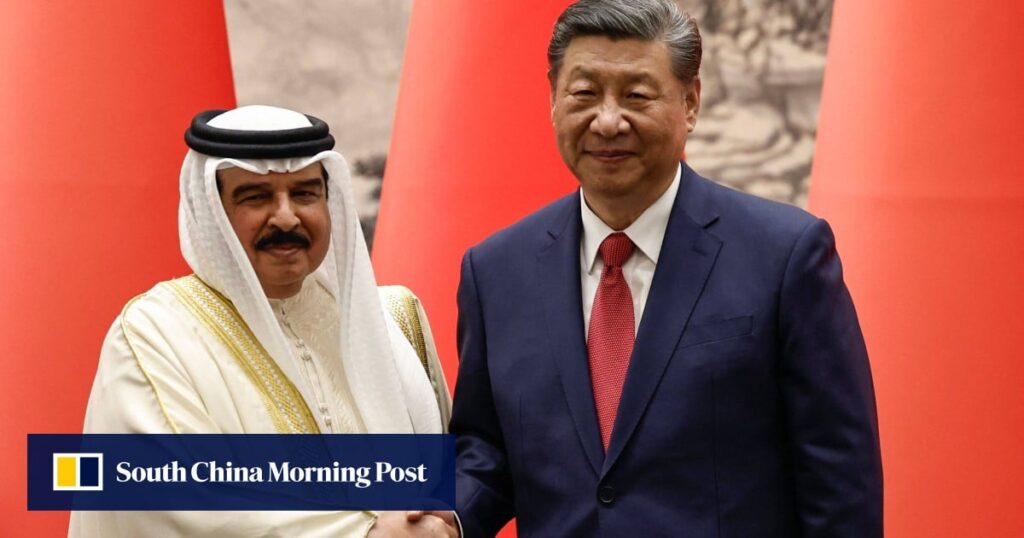Bahrain’s Unique China Partnership Sparks Curiosity Among Experts
In an intriguing turn of events, Bahrain’s recent Comprehensive Strategic Partnership (CSP) agreement with China has left many experts puzzled. The CSP announcement, made during King Hamad bin Isa al-Khalifa’s visit to Beijing on May 31, aimed to align Bahrain’s Vision 2030 economic development programme with Chinese President Xi Jinping’s Belt and Road Initiative.
The CSP deal was preceded by the launch of direct flights between Bahrain and China, as well as preliminary cooperation agreements between their sovereign wealth funds and chambers of commerce. Despite Bahrain’s relatively small engagement with China, the CSP raised eyebrows due to the lack of significant Chinese construction projects or energy exports from Bahrain.
Analysts speculate that China offered a CSP to Bahrain as a strategic move to challenge the United States’ interests in the region. Bahrain’s strong security alliance with the US, evidenced by hosting the US Navy’s Fifth Fleet headquarters, prompted China to establish a closer link with Bahrain to send a clear message to Washington.
While the CSP with Bahrain may not result in a substantial increase in trade and investment, experts point out that it fits into China’s broader strategy of countering US influence in the Middle East and Central Asia. By strengthening ties with key regions, including Bahrain, China aims to mitigate Washington’s anti-China containment strategy and compete in the global power game.
King Hamad’s recent visits to Beijing and Moscow signal a trend of strategic multi-alignment among Gulf Arab states. Countries like Bahrain seek to balance relations between China, Russia, and the US without exclusivity. As long as Bahrain avoids crossing Washington’s ‘red lines,’ it will have room to maneuver without pushback.
Ultimately, Bahrain’s decision to deepen ties with China reflects a larger trend of countries navigating complex international partnerships amidst great power competition. Like Singapore, Bahrain must carefully balance relations with major powers to safeguard its security in an ever-evolving geopolitical landscape.
